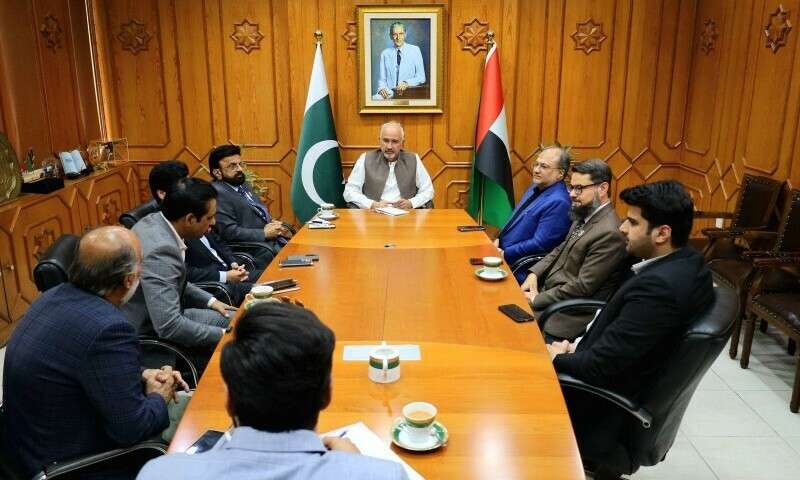The Pakistan Business Council (PBC) has called on the government to renegotiate trade agreements, particularly with China, and implement reforms to enhance the country’s export competitiveness.
In a letter addressed to Prime Minister Shehbaz Sharif, PBC Chief Executive Ehsan Malik emphasized the need for a strategic approach to trade policies, taxation, and investment incentives.
The government has set a target of $60 billion in exports over the next three years, but several challenges, including high energy costs, taxation burdens, and market access issues, are impeding progress toward this goal.
Challenges Hindering Pakistan’s Export Growth
Pakistan’s export sector has the potential to grow significantly, but certain economic barriers are limiting its ability to compete regionally and globally.
1. High Energy Costs Affecting Competitiveness
One of the biggest hurdles for exporters is regionally uncompetitive energy tariffs. While the government is taking steps to reduce power costs, the gap between Pakistan’s energy tariffs and those of its South Asian competitors remains significant.
Additionally, the recent hike in gas prices for captive power plants has placed additional financial pressure on businesses, further affecting their competitiveness.
2. Burden of Withholding Taxes
The current taxation system has created a cash flow burden for exporters. Withholding taxes and other financial obligations negatively impact business operations, discouraging export-oriented enterprises from expanding.
3. Lack of Market Access in Key Global Regions
Pakistan’s limited trade representation in Africa is another challenge. Compared to India’s strong trade networks in the African continent, Pakistan’s market penetration is relatively weak.
To counter this, the PBC has advised the Ministry of Commerce to learn from past trade agreements and adopt better strategies for global trade expansion.
The Need to Renegotiate Trade Agreements
To achieve the ambitious $60 billion export target, the PBC strongly recommends renegotiating key trade agreements, particularly with China.
1. Reviewing Existing Trade Deals
Many of Pakistan’s trade agreements were signed under economic conditions that have since changed. These agreements must be reviewed and renegotiated to align with Pakistan’s current economic landscape.
2. Aligning Export Incentives with Competitor Countries
The PBC has suggested benchmarking Pakistan’s export incentives with those offered by competitor nations. By offering similar or better incentives, Pakistan can ensure that its exporters remain competitive on a global scale.
3. Strengthening Trade Representation in Key Markets
The government must actively work to expand Pakistan’s market access by increasing trade representation in Africa, Southeast Asia, and Europe. Establishing stronger diplomatic and trade relations in these regions can help Pakistan tap into new opportunities for exports.
Export-Oriented Foreign Direct Investment (FDI) – A Key Focus
The PBC has welcomed the government’s intent to focus on export-oriented foreign direct investment (FDI). However, current investment policies do not favor export-oriented industries over market-seeking FDI.
1. The Need for Special Incentives for Export-Oriented FDI
To encourage export-driven investment, the government must introduce:
- Tax benefits and lower regulatory barriers for foreign investors in export sectors
- Ease of business policies to attract multinational companies
- Subsidies and incentives for industries involved in high-value exports
2. Encouraging Domestic Investment in Export Sectors
Apart from foreign investment, local businesses must also be encouraged to invest in export-driven industries. This can be done by:
- Providing tax relief for export-oriented businesses
- Offering financing solutions and low-interest loans
- Facilitating ease of trade through simplified regulations
Fiscal Policies and Tax Reforms for Export Growth
1. Raising the Tax-to-GDP Ratio Through Growth, Not Over-Taxation
The PBC supports increasing Pakistan’s tax-to-GDP ratio, but warns against over-taxing existing businesses. Instead, the government should:
- Encourage business expansion to naturally increase tax revenue
- Promote formalization and corporatization to bring more businesses into the tax net
- Expand the tax base by including the untaxed and under-taxed sectors
2. Avoiding Over-Taxation of Existing Businesses
If the government increases taxation on already compliant businesses, it could discourage investment and economic growth. Instead, the focus should be on widening the tax base rather than increasing the burden on existing taxpayers.
Pakistan’s Export Competitiveness: Key Recommendations
The PBC’s recommendations focus on making Pakistan’s exports more competitive, ensuring economic sustainability and long-term growth.
1. Strengthening Export Incentives
The government must benchmark its export policies against competitor countries and introduce:
- Duty-free raw material imports for export-based industries
- Tax reductions for export-driven businesses
- Incentives for innovation and technology adoption in manufacturing
2. Addressing Energy Costs for Exporters
The government must implement policies to reduce power and gas tariffs to match those in neighboring countries. This will enhance the cost competitiveness of Pakistani exports.
3. Expanding Market Access Through Trade Agreements
The government must actively renegotiate trade agreements, particularly with China, the European Union, and African nations, to secure better terms for Pakistani exporters.
4. Supporting SMEs in the Export Sector
Small and medium-sized enterprises (SMEs) are the backbone of the economy. To support SME exporters, the government should:
- Offer financing programs
- Provide skill development initiatives
- Introduce simplified export procedures
Frequently Asked Questions (FAQs)
1. Why is Pakistan Business Council urging the government to renegotiate trade agreements?
The PBC believes that Pakistan’s existing trade agreements are outdated and need to be renegotiated to ensure better market access and fairer terms for exporters.
2. How does high energy cost affect Pakistan’s export sector?
Pakistan’s energy tariffs are higher than those in neighboring countries, making exports less competitive. Lowering energy costs will help reduce production expenses and boost exports.
3. What are the PBC’s recommendations for improving Pakistan’s tax system?
The PBC recommends increasing the tax-to-GDP ratio by broadening the tax base, rather than over-taxing existing businesses. It also supports reducing the tax burden on export-driven companies.
4. How can Pakistan attract more export-oriented foreign investment?
The government should offer special incentives, tax breaks, and easier regulatory approvals for foreign investors in export-based industries.
5. What steps should the government take to improve market access?
The government must expand trade representation, strengthen ties with African and European markets, and renegotiate trade agreements for better export opportunities.
Conclusion: A Path Toward Sustainable Export Growth
To achieve the $60 billion export target, the government must address key challenges related to energy costs, taxation, trade policies, and market access.
By renegotiating trade agreements, expanding export incentives, and promoting foreign investment, Pakistan can strengthen its export sector and ensure long-term economic growth.
With strategic reforms and business-friendly policies, Pakistan can unlock its full export potential, paving the way for a more prosperous economy.



